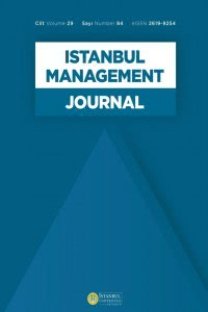READY TO GO?TRUST IN ORGANIZATION AND READINESS TO CHANGE AS PREDICTORS OF SUCCESSFUL ORGANIZATIONAL INNOVATIONS: CONCEPTUAL MODEL WITH PRELIMINARY SUPPORT
Trust has been a long triggering construct for scholars across various disciplines. While individual level trust has been extensively dealt with by scholars in psychology; trust among strategic partners has been analyzed in extant research by strategy scholars. In the cross section of the two disciplines, organizational behavior researchers have shown attempts to link individual level trust to organizations. This paper is an effort to evaluate the trust in organization construct. Following this core objective, we aimed to combine trust in organization to perceived success of organizational level innovation. Yet, we content that readiness level of employees for change will be a mediator between trust in organization and perception of success of organizational level innovation. Qualitative insights from depth interviews allowed us to revise our model and advocate on methodological suggestions for further research avenues.
Anahtar Kelimeler:
-
READY TO GO?TRUST IN ORGANIZATION AND READINESS TO CHANGE AS PREDICTORS OF SUCCESSFUL ORGANIZATIONAL INNOVATIONS: CONCEPTUAL MODEL WITH PRELIMINARY SUPPORT
Trust has been a long triggering construct for scholars across various disciplines. While individual level trust has been extensively dealt with by scholars in psychology; trust amongstrategic partners has been analyzed in extant research by strategy scholars. In the cross section of the two disciplines, organizational behavior researchers have shown attempts tolink individual level trust to organizations. This paper is an effort to evaluate the trust in organization construct. Following this core objective, we aimed to combine trust in organization to perceived success of organizational level innovation. Yet, we content that readiness level of employees for change will be a mediator between trust in organization and perception of success of organizational level innovation. Qualitative insights from depth interviews allowed us to revise our model and advocate on methodological suggestions for further research avenues.
Keywords:
Trust in organization, readiness to change, perceived organizational success case analyses approach.,
- Yayın Aralığı: 2
- Başlangıç: 1975
- Yayıncı: İstanbul Üniversitesi İşletme Fakültesi İşletme İktisadı Enstitüsü
Sayıdaki Diğer Makaleler
